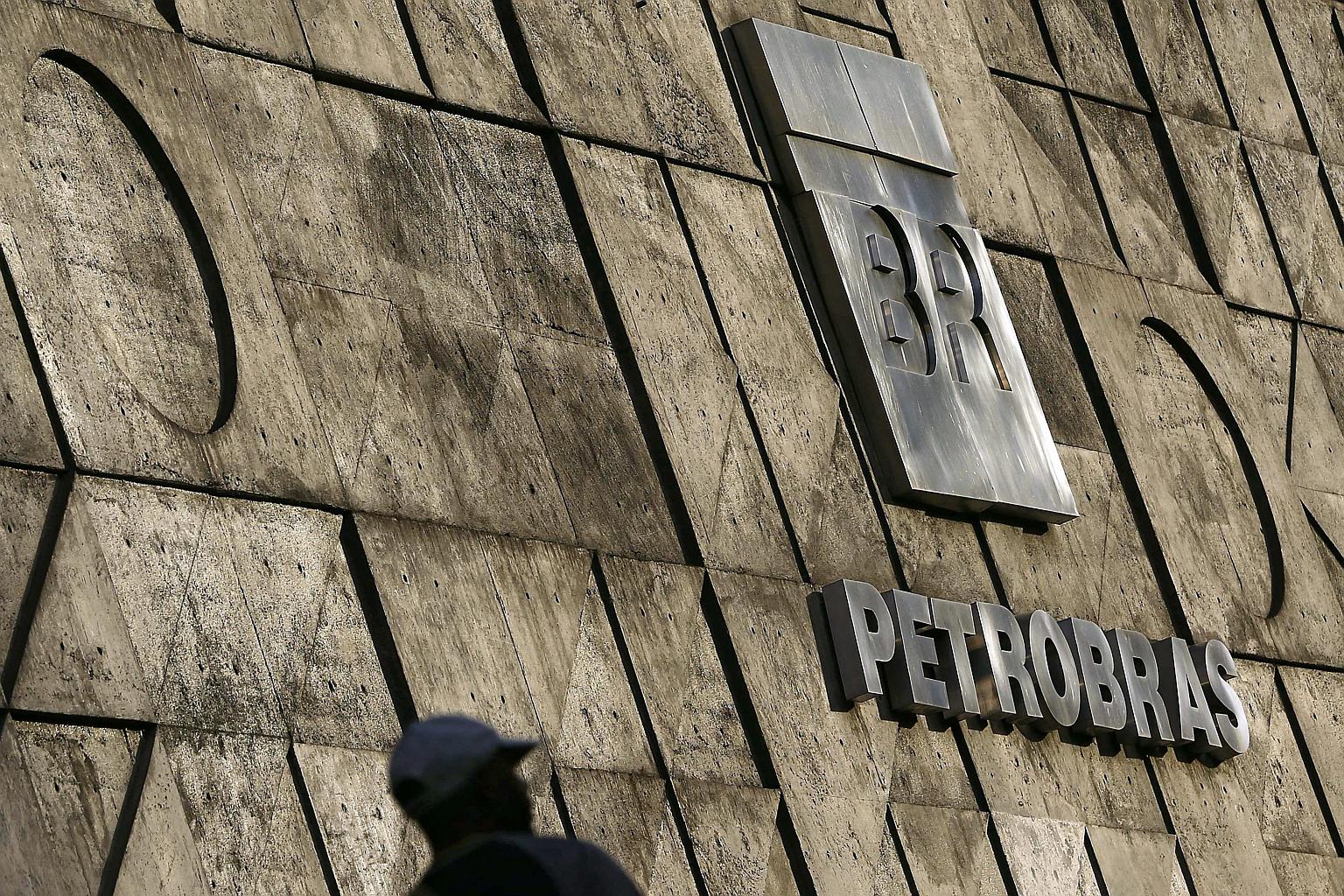Oil giant Petrobras reports record S$13.9b loss as Brazil crisis churns
Sign up now: Get ST's newsletters delivered to your inbox

The red ink at Petrobras was driven by a 46 per cent decline in the price of benchmark Brent crude oil.
PHOTO: EPA
Follow topic:
BRASILIA (AFP, REUTERS) - Brazilian state oil company Petrobras reported a record loss on Monday (March 21), underlining the toll that a deep political crisis in which it plays a starring role is taking on the Latin American giant.
Petrobras, which is at the centre of an explosive corruption scandal that has wrought chaos on Brazilian politics, said it lost 36.9 billion reais (S$13.9 billion) in the fourth quarter, the worst result since its founding in 1953.
Its plight has hit Singapore rig builders Keppel Corp and Sembcorp Marine, and trickled downstream to offshore marine companies. Nearly half of Keppel and Sembmarine's orders are from Sete Brasil, a Brazilian rig supplier that is teetering on the edge of bankruptcy after its sole customer Petrobras became engulfed in the corruption scandal.
The bigger-than-expected shortfall was 48 per cent larger than the 26.6 billion-real loss a year earlier, the previous record.
The result caught analysts and investors by surprise. The largest fourth-quarter loss expected in a Reuters survey of analysts was 9.7 billion reais.
The red ink at Petrobras was driven by a 46 per cent decline in the price of benchmark Brent crude oil, a drop that has driven up losses and caused writedowns throughout the global oil industry. Of the 46.4 billion reais written off in the quarter, 83 per cent was for oil fields.
A year earlier, writedowns were also the cause of Petrobras losses, although they were largely related to the giant price-fixing, bribery and political kickback scandal that has roiled the company and help fuel calls for the impeachment of Brazilian President Dilma Rousseff. Ms Rousseff, who was chairman of the board of Petrobras from 2003 to 2010 when much of the corruption took place, has denied any wrongdoing.
But the scandal inched closer to the embattled President as a congressional impeachment committee debated whether to expand the case against her - which so far deals only with accounting irregularities - to include corruption accusations.
The lawyer who prepared the formal accusation asked the 65-member committee for permission to add allegations from a senator charged in the Petrobras case, who said that Ms Rousseff knew about the corruption and used some of the proceeds to fund her campaigns.
If Congress votes to start an impeachment trial, Ms Rousseff would be suspended from her duties for up to 180 days. A two-thirds vote in the Senate would then remove her from office.
Thousands of anti-Rousseff protesters gathered outside the presidential palace, shouting "Get out!", a message directed at the ruling Workers' Party.
They used a projector to write the word "impeachment" on the side of the building in neon blue.
Ms Rousseff's decision to call her predecessor and mentor, Mr Luiz Inacio Lula da Silva, to the rescue backfired last week when a judge blocked his appointment as her chief of staff over pending corruption charges linked to the Petrobras scandal.
Mr Lula, who presided over a booming Brazil from 2003 to 2011, is fighting a Supreme Court injunction blocking his political comeback - and the ministerial immunity that comes with it.
Ministers can only be tried before the Supreme Court in Brazil.
Mr Lula flew to Brasilia to meet Ms Rousseff and some of her ministers, and likely to discuss the status of his appeal to the Supreme Court to annul a ruling by one of its judges suspending his appointment and sending his case back to criminal court.
Until the Supreme Court reaches a final ruling, he risks being placed in preventive detention by the crusading anti-corruption judge leading the investigation, Mr Sergio Moro.
The high court is not due to reconvene until March 30.
Investigators say Petrobras executives colluded with contractors to massively overbill the oil company over the course of a decade, bribing politicians and political parties to keep the scheme going.
As it reported its second year in the red, Petrobras bemoaned a long list of adverse business conditions including the crash in oil prices, a sinking real currency and Brazil's credit downgrade to junk status by the big three ratings agencies.
"It was an extremely difficult year for the oil industry in general," chief executive Aldemir Bendine told a press conference.
Brazilian politics have been upended by the Petrobras scandal, after 13 years of dominance by the Workers' Party.
The crisis has triggered huge, angry protests for and against Ms Rousseff laying bare sharp divisions in the country of 200 million people, just months before the Olympics in Rio de Janeiro in August.

